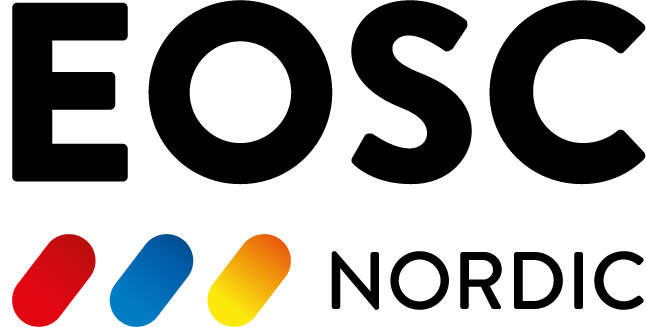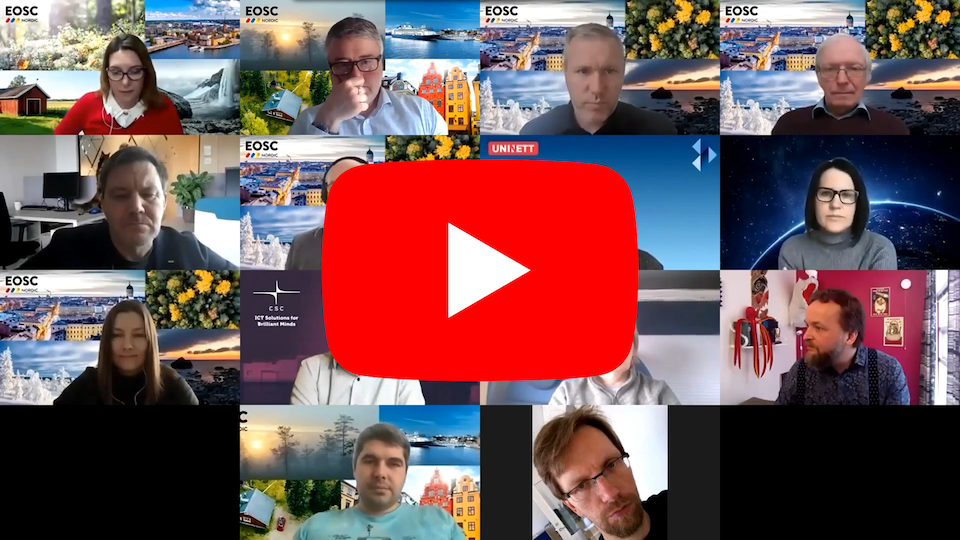 By Kaia Heimer-Bumstead
By Kaia Heimer-Bumstead
4 June 2021. The second European Open Science Cloud (EOSC)-Nordic Policy Workshop took place on 9 March 2021, bringing together researchers, policymakers, e-infrastructure service providers, and funding agencies. More than 140 participants gathered to discuss the development and facilitation of Open Science policies and cross-border collaboration among the Nordic and Baltic countries.
Among the many granular discussions about infrastructure, interoperability, and funding, there was also a call to give more responsibility to researchers (which would include many NSHG-PM members) and universities in the planning of EOSC.
EOSC-Nordic’s report on the main takeaways from the workshop identifies the importance of cross-border research and service provisioning as a major theme, noting that science and research are not bound by state borders. However, there is currently no cooperation in policymaking between Nordic/Baltic countries, and no specific policies already in place to facilitate cross-border research. In order for this to happen, strategic plans must be established with the support of all those involved in cross-border collaboration – researchers, research institutes, service providers, funders, and policymakers – and supported by appropriate funding models.
The Elephant in the Room
“Sort of an elephant in the room is who is really in the driving seat here, who is deciding what to do and what is needed,” said Sverker Holmgren, professor and director of the e-Commons at Chalmers University of Technology, at the panel discussion on “EOSC development and solutions to challenges – pitches by EOSC-Nordic.”
He noted that universities have the majority of the data that will be used in EOSC, and that researchers at these organizations will be using most of the data.
“So it’s quite fair, actually, that the research-performing organizations both take responsibility for this and also really sit in the driving seat,” said Holmgren.
The technical professionals need to remember that the goal of the data infrastructures is to allow researchers to share and jointly work on their data, noted Lars Fischer, chief technical officer of NORDUNet, in the panel discussion, “Nordic and Baltic beyond the EOSC-Nordic project.”
This is important, he said, “so that we focus on the needs of research rather than on the need of service providers to have interoperable architectures.”
“This is driven by research, it should be concentrated around researchers and on their needs,” echoed University of Copenhagen physics professor John Renner Hansen.
“What we need to avoid is to have too many technicians and coordinators like me doing the networking. It has to be the actual scientists that need to do it,” concluded moderator Troels Rasmussen, Open Science Cloud coordinator at Danish e-Infrastructure Cooperation at the time of the meeting, and now at the Danish National Genome Center.

Sustainability and Interoperability
The workshop also highlighted the necessity of sustainable data management and establishing legal and technical interoperability for national and international e-infrastructure. As EOSC-Nordic notes, “Service providers are key enablers of cross-border transactions; Appropriate mandates, business models, and reimbursement mechanisms need to be set up.”
The Nordic and Baltic countries have a long history of cooperation, providing a strong basis for the development of sustainable policies and practices in cross-border research, data sharing, and service provisioning. Such efforts on the regional level could provide valuable lessons for future developments in Open Science policy across Europe and beyond.
Visit EOSC-Nordic’s website for a full summary of the workshop and other materials from the presentations, and visit their YouTube channel for the video recording of the event.

